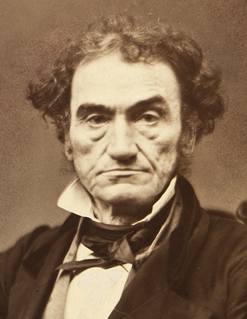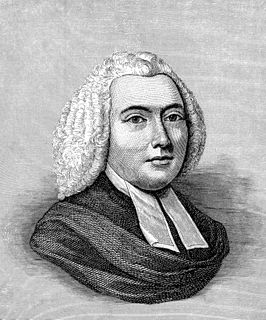Top 42 Magistrates Quotes & Sayings
Explore popular Magistrates quotes.
Last updated on April 14, 2025.
In cities men cannot be prevented from concerting together, and from awakening a mutual excitement which prompts sudden and passionate resolutions. Cities may be looked upon as large assemblies, of which all the inhabitants are members; their populace exercises a prodigious influence upon the magistrates, and frequently executes its own wishes without their intervention.
It depends on the consent of the people to decide whether kings or consuls or other magistrates are to be established in authority over them, and if there is legitimate cause, the people can change a kingdom into an aristocracy, or an aristocracy into a democracy, and vice versa, as we read was done in Rome.
In towns it is impossible to prevent men from assembling, getting excited together and forming sudden passionate resolves. Towns are like great meeting houses with all the inhabitants as members. In them the people wield immense influence over their magistrates and often carry their desires into execution without intermediaries.
Everyone that gets an authority into his hands tyrannizes over others; as many husbands, parents, masters, magistrates, that live after the flesh do carry themselves like oppressing lords over such as are under them, not knowing that their wives, children, servants, subjects are their fellow creatures, and hath an equal privilege to share them in the blessing of liberty.
An annual or frequent choice of Magistrates, who in a year, or in a few years, are again left upon a level with their neighbors, is most likely to prevent usurpation and tyranny ... If rulers know that they shall in short period of time, be again out of power, and ... may be liable to be called to account for misconduct, it will guard them against maladministration.
The comparative view of the powers of the magistrates, in two remarkable instances, is alone sufficient to represent the whole system of German manners. The disposal of the landed property within their district was absolutely vested in their hands, and they distributed it every year according to a new division. At the same time, they were not authorised to punish with death, to imprison, or even to strike, a private citizen.
This whole society, up to now, has been very violent with the individual. It does not believe in the individual; it is against the individual. It tries in every possible way to destroy you for its own purposes. It needs clerks, it needs stationmasters, deputy-collectors, policemen, magistrates, it needs soldiers. It does not need human beings.
The laws are, and ought to be, relative to the constitution, and not the constitution to the laws. A constitution is the organization of offices in a state, and determines what is to be the governing body, and what is the end of each community. But laws are not to be confounded with the principles of the constitution; they are the rules according to which the magistrates should administer the state, and proceed against offenders.
There are cases where examinations are admitted, namely, before the coroner, and before magistrates in cases of felony. That appears to me to go rather in support of the general rule than in destruction of it. Every exception that can be accounted for is so much a confirmation of the rule that it has become a maxim, Exceptio probat regulam.
We warn our children and grandchildren about peer pressure. We want them to say no to the vices of the world: drinking, drugs, and other destructive behaviors. But as we move from childhood to adulthood, we find the peer pressure changes. Daniel 3:2 notes "the satraps, the administrators, the governors, the counselors, the treasurers, the judges, the magistrates, and all the officials of the provinces" were there. I'm sure more than one of them thought they needed to keep their job with all of its benefits. Not much has changed in two-and-a-half millennia.
In its proper meaning equality before the law means the right to participate in the making of the laws by which one is governed, a constitution which guarantees democratic rights to all sections of the population, the right to approach the court for protection or relief in the case of the violation of rights guaranteed in the constitution, and the right to take part in the administration of justice as judges, magistrates, attorneys-general, law advisers and similar positions.
Wisdom and knowledge, as well as virtue, diffused generally among the body of the people being necessary for the preservation of their rights and liberties; and as these depend on spreading the opportunities and advantages of education in various parts of the country, and among the different orders of the people, it shall be the duty of legislators and magistrates in all future periods of this commonwealth to cherish the interests of literature and the sciences.
There are some whose only reason for inciting war is to use it as a means to exercise their tyranny over their subjects more easily. For in times of peace the authority of the assembly, the dignity of the magistrates, the force of the laws stand in the way to some extent of the ruler doing what he likes. But once war is declared then the whole business of state is subject to the will of a few ... They demand as much money as they like. Why say more?
They are more properly ‘The Messengers of Satan to buffet us.’ No rulers are properly God’s ministers, but such as are ‘just, ruling in the fear of God.’ When once magistrates act contrary to their office, and the end of their institution when they rob and ruin the public, instead of being guardians of its peace … they immediately cease to be the ordinance and ministers of God, and no more deserve that glorious character than common pirates and highwaymen.
How shall I admire, how laugh, how rejoice, how exult, when I behold so many
proud monarchs groaning in the lowest abyss of darkness; so many
magistrates liquefying in fiercer flames than they ever kindled against the
Christians; so many sages philosophers blushing in red-hot fires with their
deluded pupils; so many tragedians more tuneful in the expression of their
own sufferings; so many dancers tripping more nimbly from anguish then
ever before from applause.
Freedom of speech is a principal pillar of a free government; when this support is taken away, the constitution of a free society is dissolved, and tyranny is erected on its ruins. Republics and limited monarchies derive their strength and vigor from a popular examination into the action of the magistrates.
Filial obedience is the first and greatest requisite of a state; by this we become good subjects to our emperors, capable of behaving with just subordination to our superiors, and grateful dependents on heaven; by this we become fonder of marriage, in order to be capable of exacting obedience from others in our turn; by this we become good magistrates, for early submission is the truest lesson to those who would learn to rule. By this the whole state may be said to resemble one family.

































